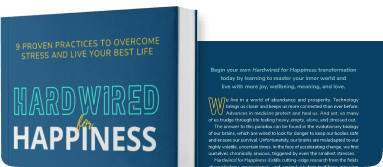Becoming More Human in the Age of AI: How Awareness, Compassion, and Wisdom Can Help Us Flourish with Rasmus Hougaard

This blog is inspired by my conversation with Rasmus Hougaard—Founder of Potential Project and author of More Human. Rasmus has been a pioneer in human-centered leadership long before it became a buzzword, and our dialogue was a masterclass in merging timeless wisdom with emerging tech. What follows are my reflections, insights, and actionable takeaways from our rich exchange.
From Inner Technology to Human Flourishing
Rasmus’ journey began not in a boardroom, but in a Buddhist monastery. At 17, disillusioned by the Western “success script,” he left Denmark for Nepal and India, drawn by what he beautifully called “inner technology”—the practice of training the mind and heart.
“There, they don’t have the same planes and chewing gum,” Rasmus joked, “but man, they have technology for training the mind and the heart.”
That idea—inner technology—stayed with me. It’s something I’ve experienced deeply in my own journey. I shared with Rasmus how my reorientation only began in my mid-40s after years of chasing external success. It took me over a decade at McKinsey, and a pivotal retreat in Portugal, to finally reconnect with what I call my higher calling—the reason I chose to leave it all behind and start Happiness Squad.
Whether we arrive at it at 17 or 44, the truth is the same: if we want to flourish, we must begin within. In a world on fire with distraction and disconnection, we must return to the basics—cultivating awareness, compassion, and wisdom.

1. Awareness: The Foundation of Leadership in a Distracted World
We live in an era where distraction is the norm and attention is the new currency. Awareness, Rasmus explained, is the operating system of being human. It’s how we perceive ourselves, others, and the systems we’re in. And in a world of AI-generated content, it’s more critical than ever that humans set the context.
“Leaders must set the context, and let AI deliver the content,” Rasmus shared. But to set the right context, you have to examine your own biases and lenses. That requires mindfulness activities and deliberate reflection.
Here’s one simple exercise Rasmus offers leaders:
- Write down your top three priorities.
- Meditate or sit quietly for just 2 minutes.
- Now, rewrite your top three priorities.
The difference is often profound. The second list is more aligned with purpose and inner clarity.
Try this daily—especially before strategic decisions. You’ll be amazed at the shift that even a moment of stillness can create.
🧠 Research insight: Even 10 minutes of daily mindfulness has been shown to reduce stress and improve executive function. In high-pressure environments, the pause isn’t a luxury. It’s a leadership requirement.
2. Wisdom: Asking Beautiful Questions
One of the biggest traps in leadership is thinking we have to have all the answers. In reality, what distinguishes wise leaders is not certainty—it’s curiosity.
One of the biggest shifts leaders must make is moving from giving the right answers to asking the right questions.
“In an expert’s mind, there are few possibilities,” Rasmus reminded me, quoting Zen master Suzuki. “But in a beginner’s mind, there are many.”
AI can give us answers. But wisdom is knowing which questions matter.
Rasmus shared a story about Bill Marriott, who made it a practice to open meetings with a single question: “What do you think?” He wasn’t posturing—he genuinely listened. That became his leadership signature.
I often ask leaders to reflect: What if your job is not to solve, but to inquire? What if curiosity is your greatest asset?
A few practical tips to cultivate this:
- Before reacting, ask: “What am I not seeing?”
- Use AI to challenge your thinking: Try prompts like, “What biases might I have in this plan?” or “What alternative perspectives should I consider?”
- Practice humility: In team meetings, try asking, “What do you think?” It invites engagement and surfaces insight.
🌱 Mindset tip: Wisdom doesn’t always look like intellect. It often shows up as pause, presence, and perspective.
As I said in our conversation, “We need to re-learn the courage to ask questions. In today’s world, asking ‘What do you think?’ is not just humility—it’s an obligation.”

3. Compassion: Doing Hard Things in Human Ways
Compassion is not about being soft or agreeable. It’s about doing hard things in human ways. That line from Rasmus stopped me in my tracks.
“Leadership is about doing hard things. And compassionate leadership is about doing hard things in human ways.” – Rasmus Hougaard
In Potential Project’s research, four behaviors emerged as core to compassionate leadership:
- Caring Presence
- Caring Courage
- Caring Candor
- Caring Transparency
Let that sink in. The “hard” parts of leadership—giving feedback, making difficult decisions, having tough conversations—are not in conflict with compassion. They are expressions of it when done from the heart.
Take inspiration from Bill Marriott’s practice: before any difficult conversation, he would prepare only two sentences—the opening, and the closing. The rest? He left open for real, human connection.
🔥 Action step: Try this template for feedback:
“This may be difficult to hear, and it’s hard for me to say—but I’m sharing it because I care about your growth.”
💡 AI insight: AI cannot feel. It can simulate empathy, but compassion—genuine intent to reduce suffering—is a uniquely human trait. Use AI to deliver data and scripts, but always lead with your heart.
4. Daily Practices for the Flourishing Leader
If you want to be relevant in the age of AI, you must become more human—not less.

Here’s how I recommend beginning:
1. Start your day mindfully (5 minutes): Don’t reach for your phone. Sit, breathe, reflect. What kind of leader do you want to be today?
2. Schedule 3 mini-pauses throughout the day: Look outside, breathe, check in with your body. These micro-moments are powerful stress management techniques.
3. Ask better questions: Replace “How do I fix this?” with “What might I be missing?” or “What does this situation need?”
4. Lead with courage and care: Speak your truth kindly. Set clear expectations, but do it with love.
As I shared with Rasmus: “We spend hours on physical fitness, but our mental fitness is sorely underdeveloped. And yet the mind drives everything. Meditation isn’t optional anymore—it’s survival. It’s how we reclaim our inner technology in a tech-saturated world.”
Final Reflection
There’s a line in Rasmus’ book More Human that I can’t stop thinking about:
“AI will not replace great leaders. But leaders who don’t know how to augment themselves with AI—and deepen their human capacities—will be replaced.”
Let’s not be those leaders.
Let’s be the ones who slow down to speed up. Who lead with awareness, wisdom, and compassion. Who remember that the future of work isn’t about being more machine—it’s about becoming more human.
And that journey? It starts within.
Learn more about Rasmus at his Linkedin.
Listen to the podcast with Ashish and Rasmus below.
Access and subscribe to all of the episodes of the Flourishing Edge Podcast here.
Visit the REWIRE Program powered up by the HAPPINESS SQUAD Community and experience your shift within your 30-day risk-free trial today. Cultivate your Self-Awareness, Gratitude, Purpose, Community, and personal growth more through the 9 Hardwired for Happiness practices. Integrate simple and proven micro-practices grounded in the science of happiness and neuroscience of habit formation in 5 minutes a day.
Make Flourishing Your Competitive Edge.


